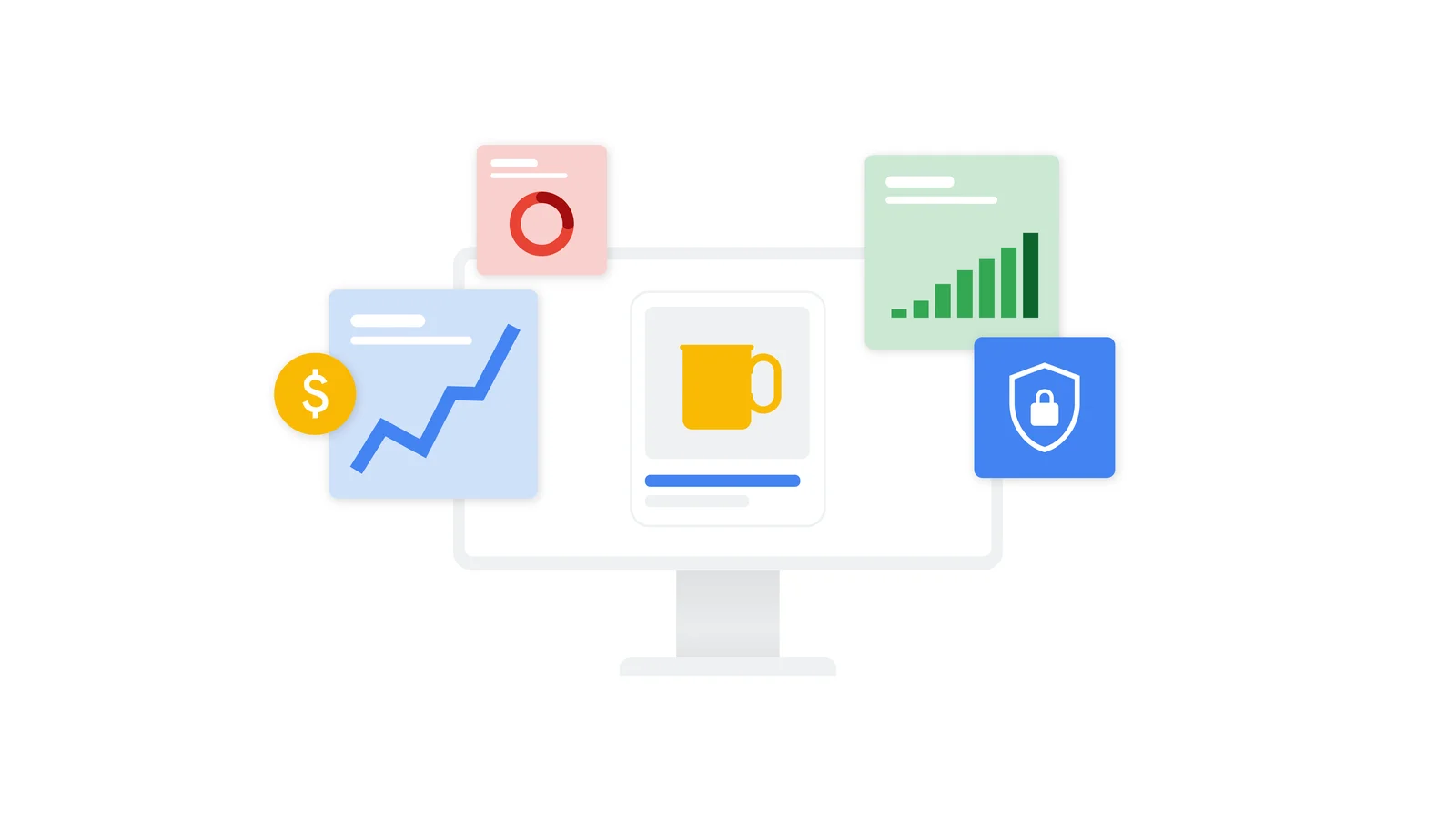Table of Contents
Introduction
The evolution of digital marketing analytics is ever changing and evolving, with Google Analytics 4 being at the forefront of this transformation. Google have just announced yet another new feature to evolve the way you can report on your key metrics, as well as bridging the gap in conversion discrepancies between Google Analytics 4 and Google Ads. In this article we will explore the impact of this update, as well as tips and tricks to get the most out of your Google Analytics 4 Reporting.
What is Changing?
User @adsliaison on X, the Official account for Google Ad’s Products has posted the following, helping you understand the changes:
Why the Update:
Discrepancies in conversions reporting have been a frustration among marketers. The aim is to provide a much more consistent view of conversions across Analytics and Google Ads. With this update, a conversion will be the same in Google Ads and in GA4.
What’s changing?
1. In GA4, legacy conversions will be renamed to key events. Key events indicate the events that are important to your business for behavioural measurement purposes. Conversions in the report and explore modules will become key events and retain the exact same measurement capabilities as the legacy conversion concept.
2. Key events will be defined as conversions only when they are shared with Google Ads. Conversions will be reflected in performance reporting.
3. New cross-channel conversion performance reporting beyond Google Ads will be added to the Advertising workspace in GA4. Consider the Advertising section your hub for Ads conversion performance reporting. 2/3
Actions needed?
None! GA4 and Google Ads users don’t have to take any action.
Legacy conversions will be changed to Key Events automatically and any conversions shared with Google Ads will be labelled as conversions and reported on in the Advertising Section.
Key Events in GA4: The Gateway to Enhanced Analytics
The newest leap in Googles innovation comes with the introduction of Key Events to measure Conversions. This new metric acts as the bridge between Google Ads and Google Analytics, allowing seamless reporting between the two platforms, helping eliminate inconsistencies in reporting, as well as enhancing the reporting capabilities of your Google Ad Campaigns.
Google have stated:
“From now on, events that measure actions that are important to the success of your business are now called ‘key events.’ You can use the behavioral data from your key events to improve the user experience across your websites and apps.
Events vs Key Events vs Conversions
Key events
A key event is an event that measures an action that’s particularly important to the success of your business. When someone triggers the event by performing the action, the key event is recorded in Google Analytics and surfaced in your Google Analytics reports.
Any event you collect can become a key event. To measure a key event, create or identify an event that measures the action and then mark the event as a key event. After you mark the event as a key event, you can see how many users perform the action and evaluate marketing performance across all channels that lead users to perform the action.
The following flow shows how to mark an event as a key event. In short, if an event is important to your business’s success, you can mark the event as a key event in Analytics.
Event → Key Event
Example
It’s important to know when a user scrolls to 90% of a lead-generation page on your website. When a user scrolls to 90% of the page, you know that the user has read through the page and viewed the sign-up form. In this example, you can identify the ‘scroll’ event on the Key events page in Admin and then mark the event as a key event, providing you with more enhanced behavioral reporting.
Conversions
A conversion is created in Google Ads from a Google Analytics key event and provides a consistent way of measuring important actions in both Google Analytics and Google Ads. A conversion helps you improve your marketing strategy by providing consistent conversion counts across platforms so you can understand and optimize your ad campaigns. Unlike key events, conversions are eligible for bidding and reporting in Google Ads.
To create a conversion, identify an key event that measures the important interaction and then in Google Ads, create a new conversion that’s based on the Google Analytics key event. After you create the conversion in Google Ads, the conversion data is shared between Google Ads and Google Analytics so you’re viewing the same data across platforms.
The following flow shows how to create a Google Ads conversion from a Google Analytics key event. In short, if an event is important to your business’s success, you can mark the event as a key event in Analytics. Then, if the key event is important for optimizing ad campaigns and measuring their performance, create a conversion in Google Ads from the Analytics key event.
Event → Key Event → Conversion
Example
In addition to marking the ‘scroll’ event as a key event, you want to mark the ‘generate_lead’ event as a key event. While you could use the ‘scroll’ event to inform your Google Ads strategy, you may want to use the ‘generate_lead’ event instead because the ‘generate_lead’ event will inform you of when users complete the sign-up form on the lead-generation page, not just when they scroll through the form.
After you mark the ‘generate_lead’ event as a key event, you can create a Google Ads conversion based on the Google Analytics key event to optimize your marketing strategy. When you create the Google Ads conversion, a conversion is also created in Google Analytics and shared between the two platforms.
What you should do now?
You don’t need to take any action on your existing setup. Key events are created and reported in the same way as legacy conversions in Google Analytics, enabling you to continue to highlight the events that are important to your business. And when you want to indicate that an event is important to your business, you can now mark the event as a key event.
If you were previously exporting legacy conversions from Google Analytics into Google Ads for bidding, then your existing conversions exported to Google Ads will not need to be changed, and you don’t need to make any updates to your bidding setup.
For now on, if you have a linked Google Ads account, Google Ads conversions created from Analytics key events appear as conversions in the Advertising section in Google Analytics.
To create new Google Ads conversions going forward, you now need to create the conversions based on your Google Analytics key events within Google Ads.
You can also continue to access your historical conversion data as key event data, enabling you to continue to view year-over-year comparisons. Google Ads conversions that are shared with Google Analytics, however, do not have historical data associated with them.
Frequently Asked Questions
Why are conversions being renamed Key Events?
Google has decided to align the term ‘conversion’ between Google Ads and Analytics to make it simpler to measure the performance of Google Ad campaigns across the two platforms. This means you can now view the same Google Ads performance metrics in either platform. This also enables more advanced reporting capabilities in Google Analytics 4.
Do Key Events and Conversions share the same attribution settings?
You can see the current attribution settings for Key Events in the attribution page in your Google Analytics Admin panel. From there, you can change the Attribution Model and Lookback Windows. The reporting attribution model affects how key events are credited in behavioral and performance reports. The key event lookback window determines how far back in time an interaction is eligible for attribution credit.
What actions do I need to take?
You don’t need to take any action on your existing setup. Key events are created and reported in the same way as legacy conversions in Google Analytics, enabling you to continue to highlight the events that are important to your business. And when you want to indicate that an event is important to your business, you can now mark the event as a key event.
Can I use non-key events to create conversions?
Yes! Any event can be made into a Google Ads conversion. If you make a Google Ads conversion from a non-key event, the event will automatically be marked as a key event!
Need help with your Google Analytics? Reach out to analaytics@am-i.com to start your Google Analytics 4 Journey.


